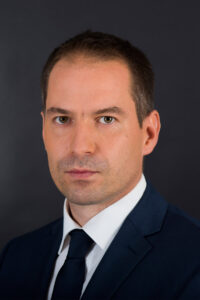“There are elements of Hungarian foreign policy that make it obvious that Russian ties are strong. Of the EU states, Hungary is the most vulnerable to Russian and Chinese influence” Peter Kreko – director of the Hungarian think-tank Political Capital, tells Anita Komuves.
***
Your recently published book, titled “Mass Paranoia”, explores the science behind how conspiracy theories and fake news work and how it is possible to fight “brainwashing”. How much influence did fake news have on the result of the Hungarian parliamentary election at the beginning of April? Would you call what happened in Hungary brainwashing?
There was an attempt at brainwashing: the Hungarian government spent a huge amount of taxpayer money on spreading its messages on billboards and through government-organized media outlets. However, we cannot speak about brainwashing because the space for public discourse is not completely closed. Everyone is free to go online and read independent news outlets. RTL Klub (a TV channel whose evening newscast is considered independent – A.K.) is broadcast nationally. It is true that the media market is narrowing down but we cannot say that Hungarians cannot access news sources that provide an alternative to government-organized media. What happened here is similar to what happened in the United Kingdom before the Brexit referendum and in the United States before the presidential election. In this Western fake news world, it is the people who choose media outlets that are brainwashing them in a media environment that is mostly open and free.
But we shouldn’t forget that the Hungarian government spent more money on its anti-Soros and anti-EU campaign than what the Brexit campaign cost. And that affects public opinion. What is special to Hungary is that conspiracy theories are elevated to the level of official government communication and that the Hungarian government itself is financing the fake news machine.
Outlets such as origo.hu, 888.hu, daily Lokál or weekly Figyelő are classic fake news and disinformation outlets. And in Hungary it is the prime minister himself who speaks about things like how George Soros wants to bring migrants into the country. Fake news became official communication, which you do not see in Western Europe. This places Hungary closer to Eastern illiberal countries and you will see similarities if you look at how Western countries are portrayed in Russia or Turkey and how conspiracy theories are used in those countries to attack their domestic opposition.
Hungary is a post-truth laboratory where the system includes elements of both the Western fake news world and the communication strategies of autocratic illiberal regimes of the East.
There are studies that show the effectiveness of this propaganda. Attitudes towards migrants had been negative before the anti-immigration campaigns started. However, studies by polling companies Tárki and Medián proved that the campaigns made these previously empty prejudices stronger.
In the case of George Soros it was different. When the anti-Soros campaign started, his name was practically unknown. He was not the hated figure that the government wanted him to be. But the campaign attacking him was effective, and today the public sees him as a bigger threat than Russia. The Hungarian government is not simply strengthening existing prejudices, it is creating them.
The third topic is our relationship with the West and I think this is the scariest of all. We have never (before) seen a propaganda campaign in Hungary that paints Western capitals like Vienna, London or Paris in a negative light and portrays them as scenes of the apocalypse where migrants are waging a war against the locals.
News portal 444.hu recently published a study that showed that attitudes towards Western countries became more negative while Russia and China are becoming more popular in Hungary. If Fidesz voters had to choose between Moscow or Washington, more of them would pick Moscow. This is the scariest of all because previously experts thought that Hungarians are pro-Western and that cannot be changed, but today Vladimir Putin is more popular in Hungary than Donald Trump or Angela Merkel. This shows that the government’s propaganda campaign was effective. Hungarians are not dumber than other people and they are also not less critical towards their leaders than others. But such a strong propaganda campaign does influence people and it proves that we need to forget the idea that after the 20th century it is not possible to brainwash people with propaganda again. We must also recognize that Orban is not doing this to win the elections but to shape public opinion in the long term and turn it to an Eastern, illiberal direction.
What’s next for Orban and Hungary in the international arena? Is he going to take Hungary even closer to Russia?
There are two international issues where it is impossible to make sense of what the Hungarian government is doing unless we conclude that it is trying to serve Moscow’s interest. The first is Ukraine: even though Poland and Romania have minorities in Ukraine, it is only Hungary that is blocking the Euro-Atlantic integration of Ukraine. This is also harming Hungarian-American relations. It is probably no surprise that U. S. president Donald Trump still has not congratulated Viktor Orban on his election victory.
Also, Hungary was the only country to veto the EU declaration that would have stated that China is following an aggressive, expansionist policy. And not long after, Hungary was the only country to veto the proposed EU-Africa summit agreement. The curious thing is that the agreement was about exactly what Orban has been talking about – that migration issues must be managed on the spot, in Africa. Now, after the elections, there were no domestic political interests to follow here so Hungary could have quietly approved it. But it did not, and Hungary is turning even its allies like Austria against itself.
I am not saying that we are following Russia in every sense, because Hungary did support the United Kingdom in the Skripal case, but there are also other elements of Hungarian foreign policy that make it obvious that Russian ties are strong. Of the EU states, Hungary is the most vulnerable to Russian and Chinese influence.
What consequences will it have for Orban and the country if Hungarian-American relations deteriorate because of the above?
The government says that it wants to improve Hungarian-American relations, but it is hard to see how that could happen now. It seems like Hungarian diplomats have given up on this issue in a way and it looks like Orban truly believes that the world order that was dominated by the West is over. From a political and economic point of view good relations with Germany and the United Kingdom are important for him, but apart from these two, deterioration of diplomatic relations with other Western countries does not bother Orban. The new American foreign policy paradigm and the fact that human rights are not their priority anymore, will be enough to protect Orban from a bigger conflict. And if the State Department or the U.S. embassy in Budapest issue a critical statement, why would that bother the Hungarian government?
What can we expect in domestic politics?
More of the same. The government feels that the election victory legitimizes what they have been doing. There is one topic – demographics, where Orban wants to see significant results and the reason for this is that problems caused by an aging population are in our present and not in the future. This will cause problems in the pension system very soon, when Orban might still be in power. It seems like the government seriously wants to do something about this issue, though in the past four years nothing happened in any important public policy areas.
The only thing that the Orban government did in the past four years was that it took over more and more of the economy. They only dealt with sectors where they had financial interests, and the election results proved to them that voters are not interested in public policy.
This means that financial interests of the governing elite will continue to dominate government policy. The only policy area that might be impacted is healthcare: there will be a boom in private healthcare facilities. New private healthcare providers will be created that will then be receiving huge amounts of taxpayer money and EU funds.
The 2021-2027 budget proposal published by the European Commission on May 2nd proposes cutting the financial support to countries that do not respect the rule of law and thus cause financial risks to the EU budget. Does this mean that Brussels has had enough and will do something about corrupt leaders?
Something new is happening right now that has not been happening before: EPP politicians are under pressure by their voters in their own countries. This is important because Orban’s legitimacy is coming from the EPP. But during both the budget vote and the LIBE (European Parliament’s Committee on Civil Liberties, Justice and Home Affairs) vote we could see that more and more EPP members, even Germans, are critical towards Orban. These politicians are afraid that more scandals are coming, scandals like the so-called Elios case where OLAF uncovered that Orban’s son-in-law enriched himself by pocketing EU funds. This shows their voters that the EU is pouring money into countries where governments and their friends are stealing all those funds, and this might strengthen EU skepticism, which is scary for Western politicians.
But this is a very complex process. Just inside CDU there is both strong criticism of Orban as well as a stronger and stronger pro-Orban group that sees the Hungarian PM as an anti-Merkel force. And then there is the question of what is going to happen to Poland. Hungary in the past two years has been protected by the fact that Poland seemed bigger and more important but now if Poland backs off and will not dominate the agenda anymore, then Hungary might become more important again. All these point towards a harder time for Orban. He will have a harder time during the budget talks and it will be more difficult for him to play his favorite game: waging a war of independence against Brussels while channeling EU funds to his friends.
***
Péter Krekó is a social psychologist and political scientist. Since 2011 he is the executive director of Political Capital – Hungarian policy research, analysis and consulting institute. During 2016-2017 he worked as a Fulbright Visiting Professor at the Central Eurasian Studies Department of Indiana University. He focuses on Russian ‘soft power’ policies and political populism and extremism in Europe. He wrote his PhD thesis on the social psychology of conspiracy theories.
Hungarian journalist, works with the investigative outlet Atlatszo. She won the Junior Prima Prize in 2012. Former Fulbright/Humphrey Fellow. Based in Budapest.







